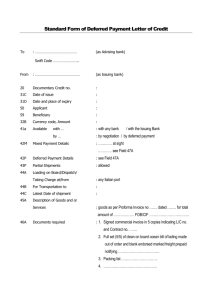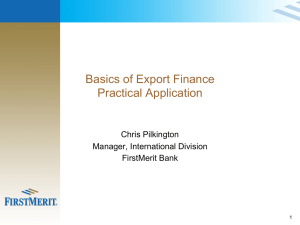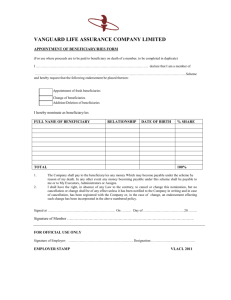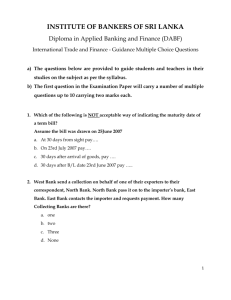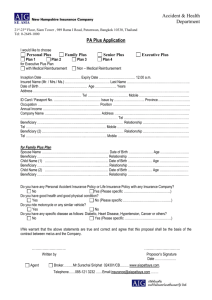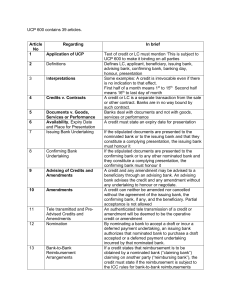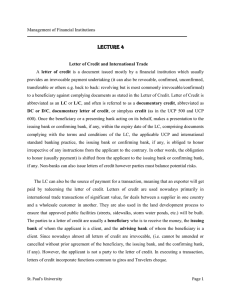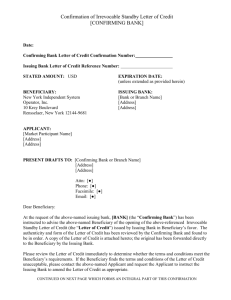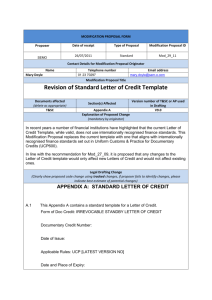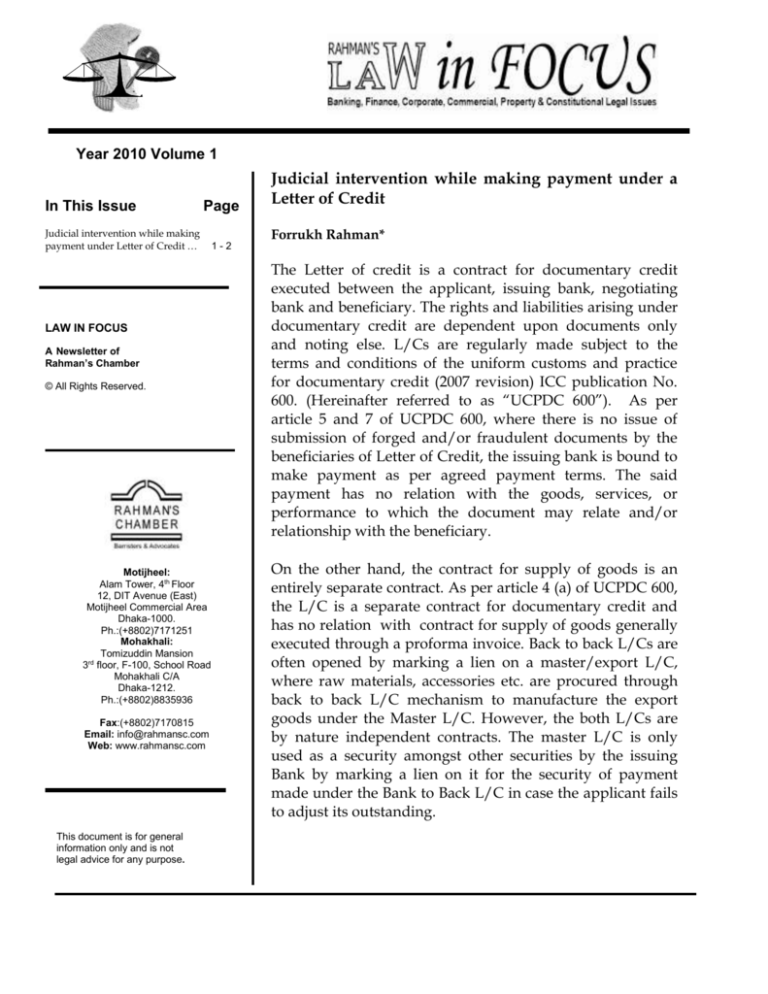
Year 2010 Volume 1
In This Issue
Page
Judicial intervention while making
payment under Letter of Credit …
LAW IN FOCUS
A Newsletter of
Rahman’s Chamber
© All Rights Reserved.
Motijheel:
Alam Tower, 4th Floor
12, DIT Avenue (East)
Motijheel Commercial Area
Dhaka-1000.
Ph.:(+8802)7171251
Mohakhali:
Tomizuddin Mansion
3rd floor, F-100, School Road
Mohakhali C/A
Dhaka-1212.
Ph.:(+8802)8835936
Fax:(+8802)7170815
Email: info@rahmansc.com
Web: www.rahmansc.com
This document is for general
information only and is not
legal advice for any purpose.
1-2
Judicial intervention while making payment under a
Letter of Credit
Forrukh Rahman*
The Letter of credit is a contract for documentary credit
executed between the applicant, issuing bank, negotiating
bank and beneficiary. The rights and liabilities arising under
documentary credit are dependent upon documents only
and noting else. L/Cs are regularly made subject to the
terms and conditions of the uniform customs and practice
for documentary credit (2007 revision) ICC publication No.
600. (Hereinafter referred to as “UCPDC 600”). As per
article 5 and 7 of UCPDC 600, where there is no issue of
submission of forged and/or fraudulent documents by the
beneficiaries of Letter of Credit, the issuing bank is bound to
make payment as per agreed payment terms. The said
payment has no relation with the goods, services, or
performance to which the document may relate and/or
relationship with the beneficiary.
On the other hand, the contract for supply of goods is an
entirely separate contract. As per article 4 (a) of UCPDC 600,
the L/C is a separate contract for documentary credit and
has no relation with contract for supply of goods generally
executed through a proforma invoice. Back to back L/Cs are
often opened by marking a lien on a master/export L/C,
where raw materials, accessories etc. are procured through
back to back L/C mechanism to manufacture the export
goods under the Master L/C. However, the both L/Cs are
by nature independent contracts. The master L/C is only
used as a security amongst other securities by the issuing
Bank by marking a lien on it for the security of payment
made under the Bank to Back L/C in case the applicant fails
to adjust its outstanding.
2
This document is for general information only and is not legal advice for any purpose.
It is often observed that in a situation where
the exporter fails to export the export items
under the master L/C, he/she obtain
attachment order/injunction against the
payment to be made by the issuing bank
under the back to back L/C from the judge’s
court by misleading the court as to the
nature of the aforesaid contracts.
By failing to made payment to the
beneficiaries of the Back to Back Letter of
credit contract, the Bank violates the terms
and condition as stated in the said back to
back L/C and UCPDC 600 and is exposes
itself to the risk of being prosecuted by the
beneficiary and its advising banks. Further,
the reputation of the Bank as an issuing
bank of L/C is seriously jeopardized.
The above position is well stated in the case
named Gooryonly (BD) Textiles Ltd. vs.
Chartkar 54 DLR (AD) 2002 where
appellate Division held that “a letter credit
is independent and unqualified by the
contract of sale or underlying transaction
and the autonomy of the same is required to
be protected.” The judiciary is often
misguided as to the contractual position of
the parties and judicial intervention is often
successfully secured by the exporter of
master L/C notwithstanding that the legal
position is clearly stated in the above case.
This is often seen as a serious flaw in the
commercial transactions of the country
involving several countries and parties. The
bank often delays in vacating the attachment
order/injunction by filing appeal -
- considering that the relevant beneficiary may
take the recourse. It is often observed that the
beneficiary is often kept in grey and/or is not at
all made a party to the said suit for injunction,
hence filing appeal by the beneficiary may only
cause delay, further damaging the reputation of
the Bank. So long the Bank is contractually
bound to make payment upon maturity or
otherwise, it is the Bank who should initiate
appeal to the relevant appellate court and take
steps to vacate the attachment order in order to
protect its reputation and also to avoid the risk of
being prosecuted by the concerned beneficiary.
----------------------------------------------------------------* Barrister-at-Law; Advocate, Supreme Court of Bangladesh
For further information and past volumes, please visit www.rahmansc.com


